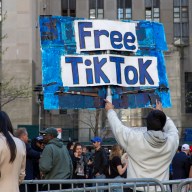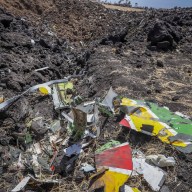TORONTO – Siegfried Wolf, co-CEO of Magna International Inc., has been named chairman of Russian automaker Gaz Group in an indication the auto parts giant hopes to maintain close ties to Russia despite earlier difficulties there.
Wolf has been a member of Gaz’s board of directors for several months and is now the company’s chairman, a source close to Aurora, Ont.-based Magna (TSX:MG.A) confirmed Thursday.
Magna has long expressed its interest in expanding into the fast-growing Russian vehicle market with the help of Gaz, Russia’s largest manufacturer of commercial vehicles.
Gaz is part of Russian Machines Corp., owned by billionaire Oleg Deripaska.
Magna made a major gamble on Russia in 2007 when its founder and chairman, Frank Stronach, sold a stake in the company to Deripaska under a US$1.54-billion deal that would see the partners develop cars in the Russian market.
While Magna’s total sales declined 27 per cent in 2009, production sales outside North America and Europe grew 31 per cent in the same period – the company’s eighth straight year of sales increases in its non-traditional markets.
However, Deripaska was forced to cash out his 20 million Magna shares as the credit crunch undermined the partnership’s financing.
More recently, published reports late last year said Magna was in talks with General Motors and Gaz to open a vehicle assembly plant in Russia. At the same time, Magna was bidding to take a majority stake in GM’s money-losing European division, Opel, along with Russian lender Sberbank.
It was expected that Gaz would take over Sberbank’s share of Opel once it finished its own restructuring.
However, that deal fell apart after GM decided it could restructure Opel on its own for less money than it would have to spend under the Magna deal.
Wolf’s new role at Gaz indicates Magna’s Russian dream isn’t dead, only altered, said David Tyerman, auto parts analyst at Genuity Capital Markets.
Magna already owns three manufacturing plants in Russia and it’s likely the company is planning to expand beyond that.
“Since they’ve talked about Russia they’ve had an intention to grow that business,” Tyerman said. “I think they feel they have unusually good prospects there, because they have links to people like Oleg Deripaska.”
Magna has contracts with other Russian manufacturers besides Gaz, and while the company’s desire to remain close to Gaz is clear, it’s not going to rely on a single automaker to open the doors to the huge Russian market, he added.
Gaz mostly manufactures commercial vehicles like trucks, buses and construction equipment. Its one foray into the passenger car market – it redesigned the Chrysler Sebring and sold it as the Volga Siber – was a “notable failure,” Tyerman said.
“I think Magna is unlikely to have put all its eggs in the Gaz basket. I think they would spread it around,” he said.
Magna, which is Canada’s largest auto parts manufacturer, has been working to diversify outside its traditional markets of North America and Western Europe after it took a beating during the global recession.
While Magna’s total sales declined 27 per cent in 2009, production sales outside North America and Western Europe grew 31 per cent in the same period – the company’s eighth straight year of sales increases in its non-traditional markets.
The company, founded more than half a century ago by Stronach, has cut thousands of jobs in North America, reducing its global workforce to about 70,000 people from 84,000 in 2007.
It now hopes to grow by shifting towards other customers, expanding its assembly business, and moving into non-traditional markets and products.
As part of its move into the electric-vehicle sphere, Magna recently partnered with Ford Motor Co. (NYSE:F) to develop a fully electric vehicle which will be sold in the U.S. beginning in 2011.
Shares in Magna lost 57 cents to $62.68 in Thursday trading on the Toronto Stock Exchange.
















